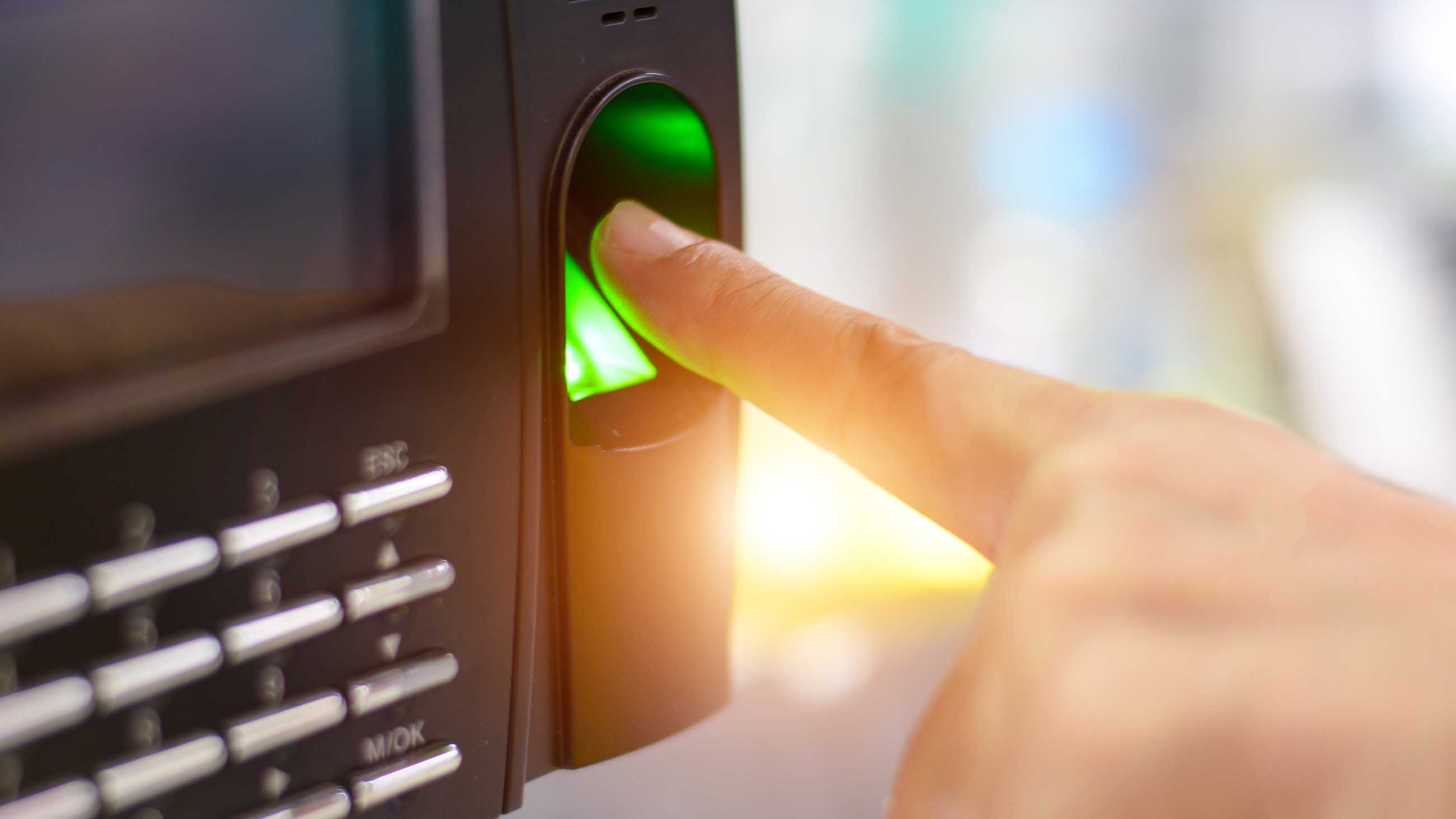Have you ever wondered how long your biometric scanner will keep working reliably? Whether you use it for unlocking your phone, securing your office, or managing access to sensitive areas, knowing its lifespan matters.
You don’t want to face unexpected failures or costly replacements just when you need it most. You’ll discover the key factors that affect how long biometric scanners last and what you can do to extend their life. Keep reading to make sure your scanner stays secure and dependable for years to come.

Types Of Biometric Scanners
Biometric scanners come in different types, each using unique methods to identify people. These devices work by capturing and analyzing physical or behavioral traits. The lifespan of these scanners depends on their type and usage. Understanding these types helps in knowing how long they last and how reliable they are.
Fingerprint Scanners
Fingerprint scanners read the unique patterns on your fingers. They are common in smartphones and security systems. These devices last several years with proper care. Their durability depends on sensor quality and usage frequency. Regular cleaning helps maintain accuracy and longevity.
Facial Recognition Devices
Facial recognition devices use cameras to capture facial features. They analyze distances between eyes, nose, and mouth. These devices last long but need updates for better accuracy. Strong lighting and clear images improve their performance. They are widely used in airports and smartphones.
Iris And Retina Scanners
Iris and retina scanners focus on the eye’s unique patterns. Iris scanners are less invasive and quicker than retina scanners. These devices are highly accurate and last many years. They require careful handling to avoid damage. Often used in high-security areas and research labs.
Voice Recognition Systems
Voice recognition systems identify users by their voice patterns. They analyze tone, pitch, and speech rhythm. These systems last well but need software updates. Background noise can affect their accuracy. Commonly used in phone systems and smart assistants.
Factors Affecting Biometric Scanner Lifespan
The lifespan of a biometric scanner depends on several key factors. These factors influence how long the device works well and how often it needs repairs or replacement. Understanding these can help you choose the right scanner and care for it properly.
Hardware Quality
The quality of the scanner’s parts is very important. High-quality materials last longer and resist damage. Cheap parts may wear out quickly or stop working. Good hardware often means fewer problems and a longer life.
Environmental Conditions
The place where the scanner is used affects its durability. Dust, moisture, and extreme temperatures can harm the device. Indoor scanners usually last longer than outdoor ones. Keeping the scanner in a clean, dry place helps it last more.
Frequency Of Use
How often the scanner is used changes its lifespan. Heavy daily use can wear out parts faster. Scanners used less often tend to stay functional longer. Choosing a scanner designed for high use can be beneficial for busy locations.
Maintenance Practices
Regular cleaning and care improve scanner life. Removing dust and dirt prevents damage. Checking for problems early helps avoid big repairs. Following the manufacturer’s maintenance advice keeps the scanner working well.
Average Lifespan Of Different Scanners
Biometric scanners vary in lifespan depending on their type and usage. Each scanner has unique components that affect how long it lasts. Understanding these differences helps in choosing the right device. It also helps in planning maintenance and replacement.
Fingerprint Scanner Durability
Fingerprint scanners usually last between 5 to 7 years. Frequent use can cause wear on the sensor surface. High-quality models have tougher materials to resist damage. Regular cleaning extends their lifespan. Poor handling and dirt can reduce their durability.
Facial Recognition Device Longevity
Facial recognition devices last about 4 to 6 years. Their cameras and sensors may degrade over time. Environmental factors like sunlight and dust affect performance. Devices with advanced optics tend to last longer. Proper care and firmware updates improve their lifespan.
Iris Scanner Lifespan
Iris scanners often last 6 to 8 years. They use infrared sensors which are quite durable. These devices have fewer moving parts, reducing wear. Consistent use in clean conditions helps them last longer. Regular calibration keeps accuracy high over time.
Voice Recognition System Durability
Voice recognition systems generally last 3 to 5 years. Their microphones and software need updates to stay effective. Background noise can affect microphone quality. Systems with noise-canceling features tend to last longer. Regular software updates are key to durability.
Signs Of Wear And When To Replace
Biometric scanners are reliable tools, but they do not last forever. Over time, signs of wear can affect their performance. Knowing these signs helps you decide when to replace the device. Early detection avoids security risks and operational delays.
Decreased Accuracy
One clear sign of wear is decreased accuracy. The scanner may fail to recognize fingerprints or faces correctly. This leads to false rejections or false acceptances. Such errors reduce security and user trust. Frequent mistakes mean the scanner needs maintenance or replacement.
Physical Damage
Physical damage affects the scanner’s ability to work well. Scratches, cracks, or worn sensors block clear readings. Dust and dirt buildup also harm the device. Physical defects make the scanner unreliable. Replace the scanner if damage is visible and affects function.
Slow Response Times
Biometric scanners usually respond quickly. Slow response times can indicate aging hardware. Delays frustrate users and slow down access. System lag may come from worn parts or outdated technology. Consistent slow responses suggest it is time to upgrade.
Software Compatibility Issues
Software plays a vital role in biometric scanners. Older devices may not support new software updates. Compatibility issues cause errors or crashes. Lack of updates exposes the system to security threats. When software no longer works well, replacing the scanner is wise.
Extending The Lifespan Of Biometric Scanners
Biometric scanners are valuable tools for security and access control. Taking care of them helps them work longer and better. Small actions can protect the scanner from damage and keep it accurate.
Extending the lifespan of biometric scanners saves money and avoids downtime. Proper care keeps the device ready for daily use. Simple steps can make a big difference in performance and durability.
Regular Cleaning And Maintenance
Dust and dirt can block sensors and reduce accuracy. Clean the scanner surface gently with a soft cloth. Avoid using harsh chemicals that may harm the device. Regular checks catch small problems before they grow. Keep the scanner free from scratches and smudges for best results.
Software Updates
Software controls how well the scanner reads data. Updates fix bugs and improve security features. Install updates as soon as they are available. Updated software helps the scanner work faster and more reliably. Ignore updates and the device may become slow or vulnerable.
Proper Installation
Place the scanner in a stable and secure spot. Avoid areas with heavy vibration or direct sunlight. Follow the manufacturer’s instructions carefully. Correct installation prevents damage and improves sensor accuracy. Incorrect setup can cause errors and shorten device life.
Environmental Controls
Keep the scanner away from extreme heat or cold. High humidity can cause internal damage. Use protective covers if the scanner is outdoors. Control dust and moisture levels in the installation area. A clean and stable environment helps the scanner last longer.
Cost Implications Of Scanner Replacement
Replacing biometric scanners affects business budgets in many ways. Cost planning helps avoid surprises and keeps systems reliable. Understanding these cost factors helps in making smart choices.
Initial Investment Vs Replacement Costs
Buying a biometric scanner means a large upfront cost. New models often come with better technology. Replacing old scanners can be expensive but may save money on repairs. The price depends on scanner type and brand. Sometimes, waiting too long to replace scanners raises costs.
Maintenance Expenses
Maintaining scanners keeps them working longer and reduces failures. Regular cleaning and software updates cost money but prevent bigger problems. Repair bills increase as scanners get older. Maintenance costs add up over time and affect the total cost of ownership.
Impact On Security
Old scanners may fail to detect security threats. Replacing scanners improves accuracy and protects data better. Security breaches due to faulty scanners cause financial losses. Investing in updated scanners strengthens overall safety. This protects both business and customers.
Future Trends Impacting Lifespan
The lifespan of biometric scanners depends on many factors. Future trends will play a big role in extending how long these devices last. New technology and materials improve their performance and durability. These trends shape the future of biometric scanners in exciting ways.
Advancements In Sensor Technology
Sensor technology is evolving fast. New sensors capture data more accurately and quickly. This reduces wear and tear on the device. Improved sensors need less maintenance. They also resist damage from dirt and moisture better. These changes help scanners last longer and work well.
Integration With Ai
Artificial intelligence enhances biometric scanners. AI can detect errors and adjust scanning processes. This lowers the risk of false matches. It also reduces the scanner’s workload. Smarter scanning means less strain on hardware. This leads to longer device life and better security.
Improved Durability Materials
Manufacturers use stronger materials in new scanners. These materials resist scratches, impacts, and weather damage. Some devices have protective coatings that last longer. Better materials reduce breakdowns and repair needs. This makes biometric scanners reliable for many years.


Frequently Asked Questions
How Long Do Biometric Scanners Typically Last?
Biometric scanners usually last between 5 to 10 years with proper maintenance. Usage frequency and environment impact their lifespan.
What Factors Affect Biometric Scanner Durability?
Durability depends on build quality, usage frequency, and environmental conditions like dust or moisture exposure.
Can Software Updates Extend Biometric Scanner Life?
Yes, regular software updates improve scanner accuracy and security, indirectly extending its functional lifespan.
How Often Should Biometric Scanners Be Maintained?
Maintenance is recommended every 6 to 12 months to ensure optimal performance and prolong device life.
Conclusion
Biometric scanners can last many years with proper care. Regular cleaning and maintenance help them work well. Technology may change, but good devices stay useful. Choose quality models for longer life and accuracy. Remember, how often you use them matters too.
Investing in reliable scanners saves money over time. Keep an eye on updates and software support. This way, your scanner remains safe and effective. Simple steps can extend the life of your device. Trust your scanner to protect and identify securely.

